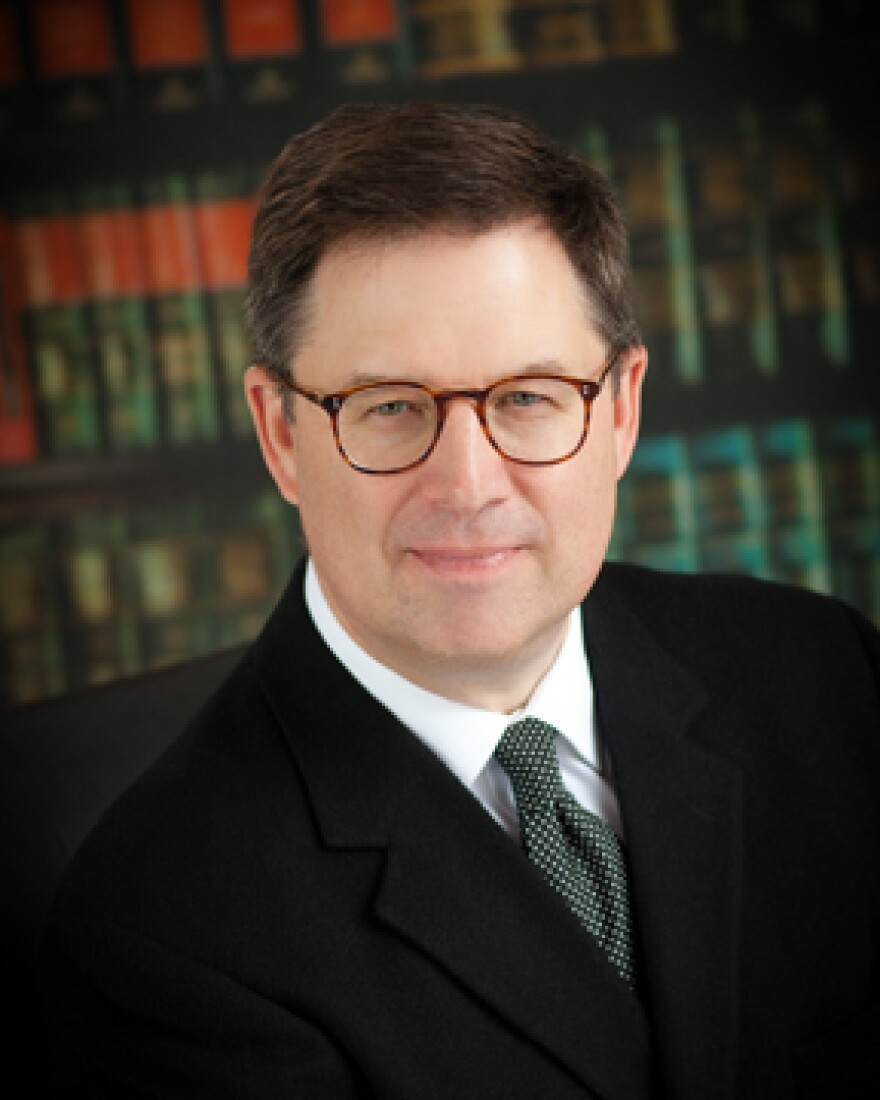One of the best things about blogging for Michigan Radio is the pleasure of introducing you to an idea or a person that network listeners and viewers of the website haven’t seen anywhere else in public radio.
When I introduced myself to Michigan Radio’s webpage readers, I suggested that at one level, NPR news is hard to criticize; what you hear in broadcasts is mostly beyond reproach.
But sometimes a larger story awaits, in what you don’t hear on the air or see on the websites. A case in point: Economists for Romney.
Economists for Romney is a group of 500 national economists, who support for Mitt Romney’s economic plan, signing a public letter to the nation that begins, “We enthusiastically endorse Governor Mitt Romney’s economic plan to create jobs and restore economic growth while returning America to its tradition of economic freedom. The plan is based on proven principles: a more contained and less intrusive federal government, a greater reliance on the private sector, a broad expansion of opportunity without government favors for special interests, and respect for the rule of law including the decision-making authority of states and localities.”
The letter’s signatories include five Nobel laureates: Gary Becker and Robert Lucas from the University of Chicago; Robert Mundell from Columbia; Edward Prescott of Carnegie-Mellon’s Tepper School of Business; and Myron Scholes (retired from Chicago and Stanford).
Phil Gramm, an economist by trade and a former U.S. Senator is one of the 500, along with Martin Feldstein of Harvard and Arthur Laffer, both former White House economists and policy advisors.
The story of “400 economists declare support for Romney” has been covered in the Wall Street Journal and on Fox News (back when it was only 400). Lawrence Kudlow featured the story on his CNBC television program. But as I write this, a search of the NPR.org website turns up… nothing.
Maybe the producers at Morning Edition or All Things Considered will get around to covering it. Perhaps Neal Conan will devote a bit of time to an interview with one of the economists on Talk of the Nation. I hope so. Because I just talked to one of the 500, and he is someone you should know.
His name is Dr. Mark J. Perry, a Professor of Finance and Economics at the University of Michigan-Flint.
You won’t find Dr. Perry in Flint this month. When I talked to him it was at his office in Washington, D.C at The American Enterprise Institute. During his regular faculty-sabbatical time in 2009, he was asked to join the AEI (the unabashedly conservative-libertarian national think tank) as a visiting scholar, and was later invited to become one of its resident scholars.
Professor Perry will return to Michigan this fall, to teaching and research duties in economics and finance, but this thoroughly modern university professor will continue running one of the most wonderfully readable and popular blogs in all of economics, called Carpe Diem. It is engaging, informative, and hilarious.
If you don’t already have a favorite academic blog bookmarked, this would be my recommendation as one of the best choices in what is becoming one of the more popular media in academics; the professorial blog.
Dr. Perry’s blog was such a success at AEI, he was asked to incorporate his blog into AEI’snew public policy and information website. This is a first-rate news and policy outlet, and Dr. Perry was instrumental in its development.
Professor Perry isn’t the first University of Michigan professor to be affiliated with AEI. The legendary, recently deceased economist Professor Paul W. McCracken of the Ross School of Business and economic adviser to Presidents Eisenhower, Nixon, Kennedy and Johnson had a long association with AEI. He chaired its Council of Academic Advisers in the 1980s and also served as the institute’s interim president in 1986.
In my own conversation with Dr. Perry I was careful and clever enough to not reveal any of my own technical inadequacies in finance and economics. Instead, I asked him for his one big idea about Michigan’s economy. You’ll be pleased to know that Dr. Perry is mostly bullish on Michigan’s economy, at least in terms of the future of high-tech manufacturing. While we’ve become accustomed to hearing about a steady exodus of U.S. manufacturing jobs, the simple fact is that the United States is the clear global leader in manufacturing. U.S. workers are the most productive workforce in the world, by far, and are paid well; an annual average salary of $77,186, according to the National Association of Manufacturers, citing the U.S. Bureau of Economic Analysis.
Dr. Perry cautions, government can do real harm to the manufacturing sector. But Michigan is now doing a lot of good things to make it a welcoming home to companies that need a place and a workforce to build things.
Professor Mark Perry of the University of Michigan-Flint; one of “the Four Hundred,” and someone I thought you might want to know more about.
Charles Brown is an attorney from Livonia. His views are his own and do not necessarily reflect those of Michigan Radio, its management, or its license holder, the University of Michigan.



